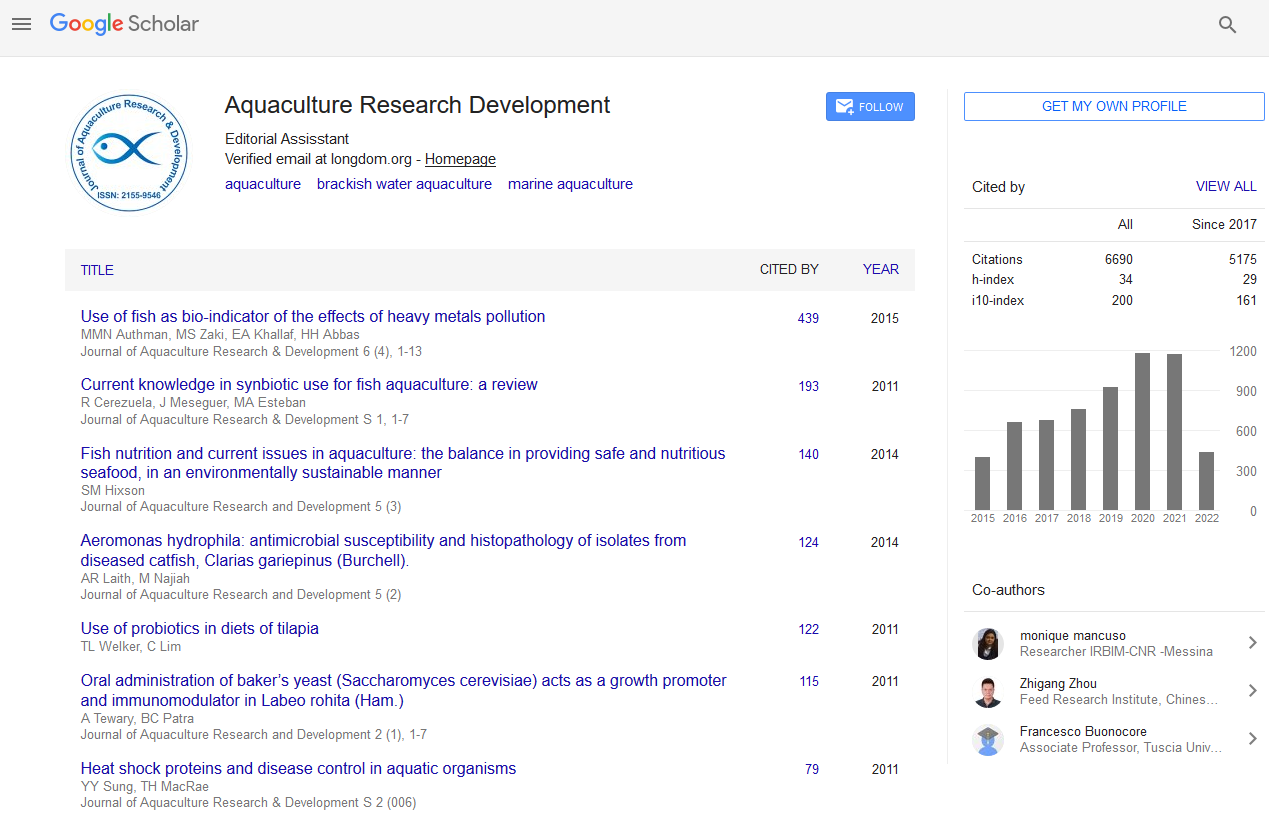PMC/PubMed Indexed Articles
Indexed In
- Online Access to Research in the Environment (OARE)
- Open J Gate
- Genamics JournalSeek
- JournalTOCs
- Scimago
- Ulrich's Periodicals Directory
- Access to Global Online Research in Agriculture (AGORA)
- Electronic Journals Library
- Centre for Agriculture and Biosciences International (CABI)
- RefSeek
- Directory of Research Journal Indexing (DRJI)
- Hamdard University
- EBSCO A-Z
- OCLC- WorldCat
- Scholarsteer
- SWB online catalog
- Virtual Library of Biology (vifabio)
- Publons
- MIAR
- University Grants Commission
- Euro Pub
- Google Scholar
Useful Links
Share This Page
Journal Flyer

Open Access Journals
- Agri and Aquaculture
- Biochemistry
- Bioinformatics & Systems Biology
- Business & Management
- Chemistry
- Clinical Sciences
- Engineering
- Food & Nutrition
- General Science
- Genetics & Molecular Biology
- Immunology & Microbiology
- Medical Sciences
- Neuroscience & Psychology
- Nursing & Health Care
- Pharmaceutical Sciences
Functional elucidation of PvRaf from Penaeus vannamei using RNA interference
5th Euro Global Summit on Aquaculture & Fisheries
March 30-31, 2017 Madrid, Spain
Joseph Carlo V Vergel and Mary Beth B Maningas
University of Santo Tomas, Philippines
Scientific Tracks Abstracts: J Aquac Res Development
Abstract:
Shrimp aquaculture is a major source of income in the intertropical countries of the Southeast Asian region. However, a great decline in production was observed due to a major viral pathogen, the White Spot Syndrome Virus (WSSV) which continues to prevail despite many preventive measures applied to deter the virus. RNA interference (RNAi) technology has been employed to reveal functions of sequence specific genes in the virus and its host with the aim of controlling WSSV by elucidating complex host-virus interactions. RNAi is a relatively new technology that introduces double stranded RNA to specifically destroy cognate mRNA. This study reports the first record of Raf gene in a crustacean system. PvRaf serves as central intermediate in many signalling pathways, ultimately regulating cell proliferation, differentiation, development, and innate immune system responses, by connecting upstream tyrosine kinases with downstream serine/threonine kinases. Moreover, PvRaf is ubiquitously expressed in the vital organs of the shrimp suggesting that it is essential to metabolic functions of the shrimp and may also play a role in its innate immune system as highlighted in its expression in the haemocytes. Four set-ups were prepared to analyze the sequence specific silencing of PvRaf namely: PvRaf-dsRNA treatment, GFP-dsRNA treatment, PBS treatment, and naive control. Statistical analysis of the mortality assay indicates that PvRaf-dsRNA treatment has a significant protective effect against WSSV compared to GFP-dsRNA and PBS treatments.
Biography :
Joseph Carlo V Vergel has completed his Bachelor of Science in Biology from the University of Santo Tomas-College of Science, Manila, Philippines. He is pursuing his Master of Science in Biological Sciences with major in Molecular Biology at the UST Graduate School as a research scholar under the Department of Science and Technology-Accelerated S&T Human Resource Development Program. In 2012, he was awarded Bayer Young Environmental Envoy by Bayer and United Nations Environment Programme. In 2014, his research study was among the national awardees of the BPI-DOST Science Awards. In 2015, he bagged the Best Oral Presentation at the 9th Symposium on Diseases in Asian Aquaculture in Ho Chi Minh City, Vietnam and received the Student Travel Award. In 2016, he was awarded a scholarship grant by the Japan Association of Student Services Organization at Yokohama National University, Japan.
Email: vergelcarl@gmail.com


